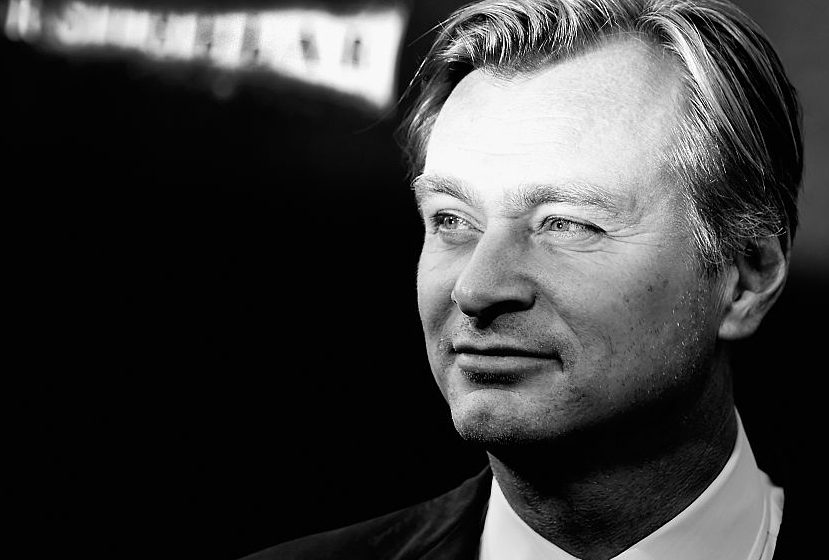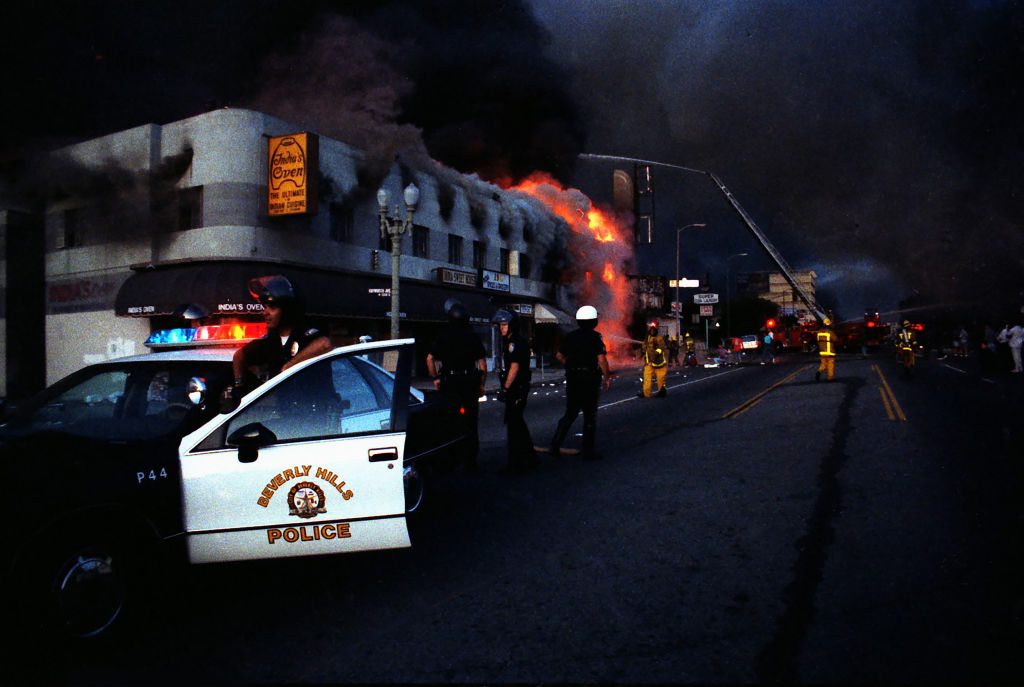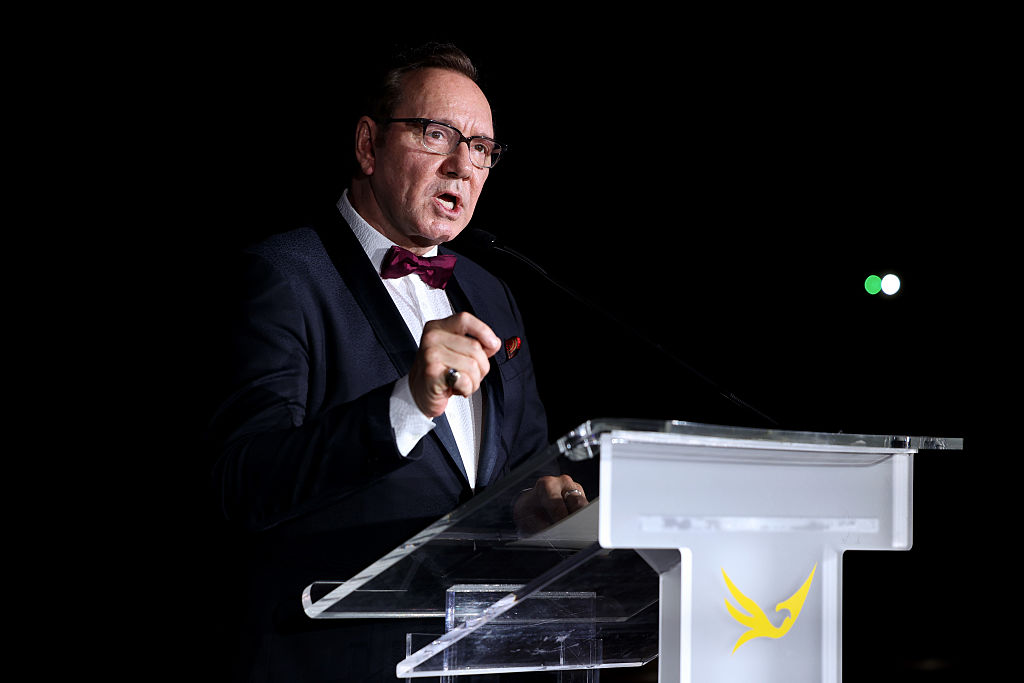The Barbenheimer phenomenon — thought of by many as just idle chatter on the internet — has enduring power. Last weekend, Barbie and Oppenheimer earned a combined $511 million in global box office receipts; an unprecedented number where neither film is a superhero picture or a sequel. Barbie made more money, on the grounds that it’s an hour shorter and is PG-13 rated, but the vast box office success of the R-rated Oppenheimer, which made over $170 million in its opening weekend, is testament both to Barbenheimer excitement, and to the film’s very own brand: its powerful writer-director-producer, Christopher Nolan.
James Cameron aside, it is hard to think of any filmmaker who wields such power and influence in contemporary Hollywood. Ever since The Dark Knight, his films have inspired a level of fervor in his acolytes that is almost comically at odds with the cerebral, demanding pictures that he makes. Oppenheimer is no exception to this — and represents a triumphant return to form after 2020’s much-troubled release of Tenet.
It takes a certain kind of skill to take the life of the theoretical physicist J. Robert Oppenheimer and turn it into the kind of propulsive and gripping drama in which Nolan has specialized throughout his career, avoiding biopic clichés in favor of something thrilling and vital. Yet from his no-budget debut Following onwards, Nolan has upended expectations, both artistic and commercial alike. There are few directors who have moved with more assurance from a self-funded black and white picture, to a low-budget and hugely acclaimed psychological thriller (Memento), to a genre-bending mystery with A-list actors (Insomnia), to redefining the superhero picture with Batman Begins. All that took place over seven years.
He has, naturally, annoyed people over the years. His films have attracted criticism for having poorly drawn roles for women (for being humorless and far too clever for their own good) and, from some quarters, for perceptions that Nolan’s personal politics tend to the right; this despite his being on record as having donated money to Barack Obama’s second presidential campaign. There is some merit in some of these criticisms, and it’s fair to say that you do not sit down to see a Christopher Nolan film expecting to see a light romantic comedy. I left Oppenheimer feeling as I usually do when I walk out of the cinema having seen a Nolan film: exhilarated, exhausted and as if I’ve been punched in the face. This is, I hesitate to add, generally a good thing.
Nolan is a wealthy and hugely successful man, thanks to the near-unprecedented deal that he has struck with his studios; 20 percent of first dollar gross means that, even for the relatively commercially unsuccessful Tenet, he could still walk away with tens of millions of dollars. He is also someone who is famously controlling when it comes to everything from the final cut of his films to marketing and publicity. One of the sticking points of the deal that he struck with Universal to make Oppenheimer was that $100 million would be allowed for the publicity campaign, as well as the same amount for the film’s budget. But he makes a lot of people a lot of money, so therefore he is allowed to do what he likes.
All of which makes his long-held and recently professed ambition — to direct a James Bond film — all the more interesting. Nolan is a great fan of the series; large parts of Inception explicitly reference his favorite picture, the downbeat On Her Majesty’s Secret Service. It has often been suggested that he would be a good match for the rebooted series, and in a recent interview he seemed to confirm his interest, saying “The influence of those movies in my filmography is embarrassingly apparent. It would be an amazing privilege to do one.” Yet he — a canny operator if ever there was one — also indicated the terms on which he’d take one on. “You wouldn’t want to take on a film without being fully committed to what you bring to the table creatively. So as a writer, casting, everything — it’s a full package. You’d have to be really needed and wanted in terms of bringing the totality of what you bring to a character.”
The director who is the closest to the Bond series’ version of an auteur, Sam Mendes, directed two 007 films; Skyfall went very well, Spectre did not. Nolan would expect a degree of control far beyond what Mendes enjoyed, and it is doubtful that the producers, Barbara Broccoli and Michael G. Wilson, would ever let him loose on their treasured franchise; therefore, his remark that “I’m very happy to be first in line to see whatever they do” can be seen as wistful realization that the dream of millions — a Christopher Nolan Bond film — is unlikely ever to be realized.
Yet ultimately, even if Nolan was to be granted final cut and complete creative freedom, he would be unlikely to make as interesting a film as he is coming up with now. A time-jumping, non-linear and frequently intellectually difficult James Bond picture might be fascinating, but it has to jostle alongside the requirements of the brand and it is highly unlikely to be as satisfying an experience as Oppenheimer, Dunkirk, Inception or any of the other personal, fascinating pictures that this hugely talented director has made. Years ago, a meme went round parodying Barack Obama’s “Hope” picture, saying simply “In Nolan We Trust.” The blockbuster success of a film that really shouldn’t have been a hit of any kind amply demonstrates that this trust continues to be justified.





















